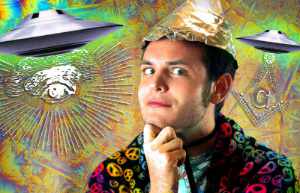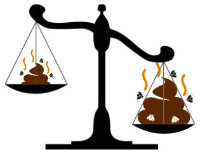Evaluating Conspiracy Theories
conspiracy theory - a theory that explains an event or set of circumstances as the result of a secret plot by usually powerful conspirators

Evaluation Criteria
- Occam’s Razor
- Evidence Gap
- Cui Bono
- Size - Number of Conspirators
- Duration of Conspiracy
- Intentional vs Mechanistic (FAE)
- Superhuman Conspirators
- Non-falsifiability
Faulty evidence commonly cited by conspiracy theorists:
- Documentation of projections/possibilities rather than actual events, e.g. Contrails vs MKUltra.
- Depends on automatic misinterpretation, e.g. UFOs assumed to be alien.
- Evidence of motivation alone is not sufficient. (See #6 above.) Typically: Assuming a fait accompli when actually some people are merely speculating about a possibility.
- Junk science or misinformation.
- Luddite mentality - assuming that a technology as such is evil, or can only have evil applications.
To be successful, a conspiracy must have:
- A small number of conspirators
- Immediate communication
- A short timespan

Bullshit Asymmetry Principle
"The amount of effort necessary to refute bullshit
is an order of magnitude bigger than to produce it."
Article:
Six Ways to Debunk Any Conspiracy Theory
Videos:
How to Judge Conspiracy Theories
Democracy of the Gullible
